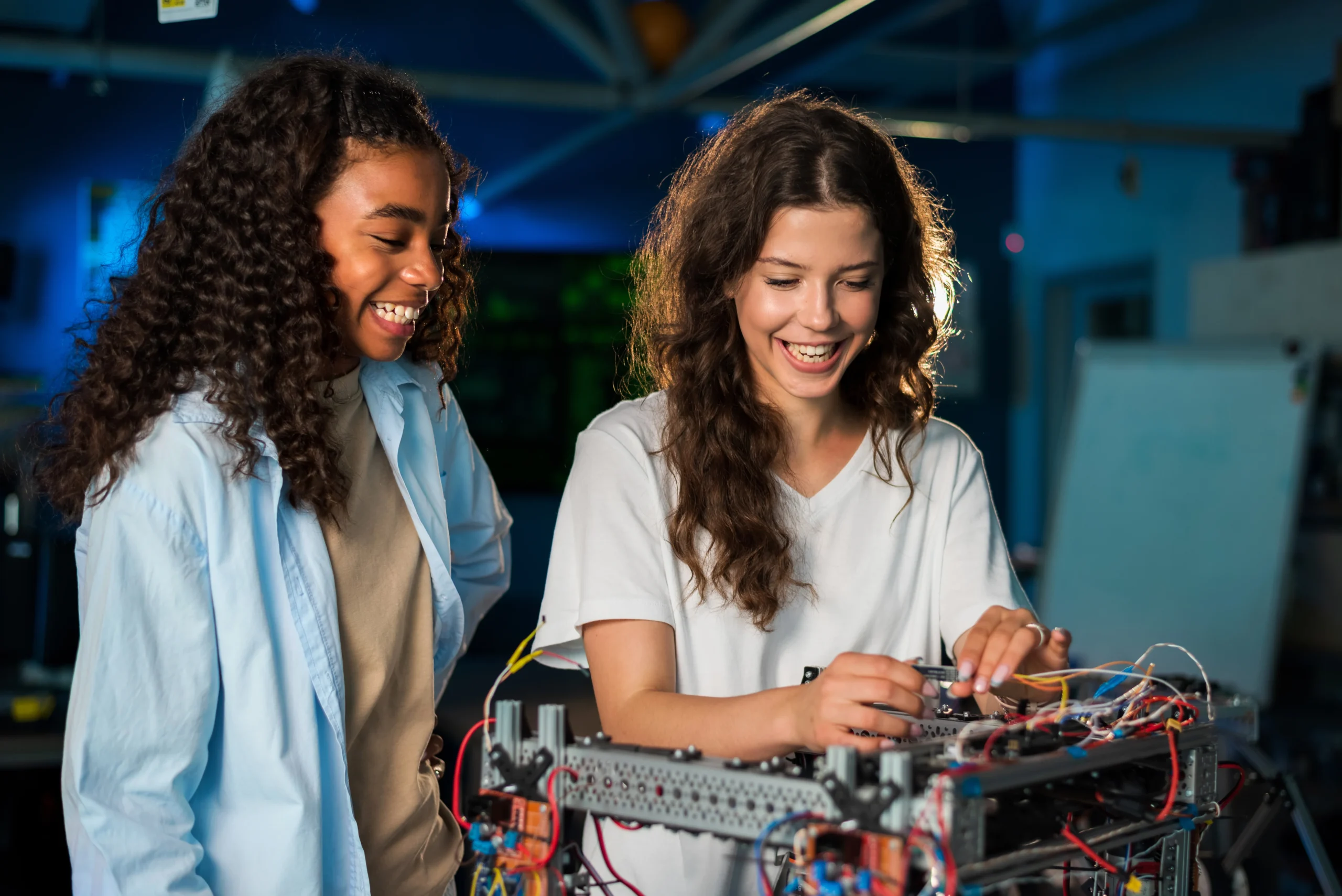United Technologies Electronic Controls (UTEC) is revolutionizing smart automation in 2025 with next generation electronic control solutions. As industries shift toward A driven efficiency, UTEC leads in advanced HVAC controls, IoT integration, and industrial automation. These intelligent systems enhance energy efficiency, optimize performance, and ensure seamless connectivity for smart homes and businesses.
With cutting edge innovations in electronic control units (ECUs) and embedded systems, UTEC is setting new standards for reliability and precision. Whether it’s improving climate control, streamlining manufacturing, or powering the future of smart technology, United Technologies Electronic Controls remains a driving force in modern automation.
United Technologies Electronic Controls: Advancing Smart Automation in 2025
United Technologies Electronic Controls (UTEC) is a global leader in advanced electronic control systems, driving innovation in HVAC, smart home automation, and industrial technology. In 2025, UTEC continues to revolutionize energy efficiency, IoT connectivity, and AI driven automation.
With cutting edge control solutions, it enhances precision, reliability, and intelligent system integration. As industries evolve, UTEC plays a crucial role in optimizing performance and sustainability. Its smart electronic controls are essential for the future of connected devices and automated solutions.
The Role of United Technologies Electronic Controls in Modern Automation
UTEC specializes in developing high performance electronic control systems for HVAC, industrial automation, and home technology. These advanced controllers manage heating, cooling, and ventilation with real time data analytics, improving energy efficiency and reducing operational costs. With AI integration, modern HVAC systems adapt to environmental changes, ensuring optimal temperature regulation.
Smart thermostats, intelligent sensors, and cloud based monitoring systems allow homeowners and businesses to achieve precise climate control while minimizing energy waste. UTEC’s advanced microcontrollers and embedded systems also support industrial operations, ensuring seamless automation in factories and large scale production facilities.
Cutting Edge Innovations in Smart Home and IoT Connectivity
In 2025, UTEC is at the forefront of IoT driven smart home automation. Its electronic control units (ECUs) enable seamless integration between connected devices, allowing for real time communication and remote access. Smart home solutions powered by UTEC include energy efficient lighting controls, automated security systems, and intelligent appliance management.
With edge computing and cloud connectivity, users can monitor and control devices from anywhere, optimizing comfort and security. UTEC’s role in the Internet of Things (IoT) ecosystem ensures that smart homes operate with maximum efficiency, reducing energy consumption and improving sustainability.
Industrial and Commercial Applications of UTEC Technology
Beyond residential applications, United Technologies Electronic Controls is a game changer in industrial automation. Manufacturing plants, commercial buildings, and data centers rely on its advanced control systems to streamline operations. UTEC’s embedded controllers enhance precision in robotics, conveyor belts, and process automation, reducing downtime and improving productivity.
AI powered predictive maintenance further enhances operational efficiency, allowing businesses to detect and resolve potential issues before they cause disruptions. These innovations contribute to a more sustainable and cost effective industrial ecosystem, meeting the demands of a rapidly evolving technological landscape.
The Future of United Technologies Electronic Controls in 2025 and Beyond
As the demand for intelligent automation grows, UTEC continues to lead with state of the art electronic controls that improve efficiency, connectivity, and reliability. The integration of AI, IoT, and machine learning into its control systems sets a new benchmark for automation.
Whether optimizing HVAC systems, enabling smart home automation, or enhancing industrial processes, UTEC is shaping the future of technology. In 2025 and beyond, its innovations will play a crucial role in creating smarter, more efficient, and sustainable solutions for businesses and consumers worldwide.
The Evolution of United Technologies Electronic Controls (UTEC)
History and Background of UTEC
United Technologies Electronic Controls (UTEC) has been a key player in advanced electronic control systems for decades. Founded as a division of United Technologies Corporation, UTEC initially focused on HVAC control solutions.
Over time, it expanded into industrial automation, smart home systems, and AI driven technologies. Its expertise in precision control and energy efficient systems has positioned it as a leader in intelligent automation solutions.
Milestones in Electronic Control Advancements
UTEC has achieved significant breakthroughs in electronic controls. Key milestones include:
- 1990s: Early development of microcontroller based HVAC systems.
- 2000s: Integration of digital controls for industrial applications.
- 2010s: Adoption of IoT based monitoring and remote control features.
- 2020s: Shift towards AI powered predictive maintenance and automation.
- 2025: Enhanced cybersecurity and cloud based control platforms.
These innovations have improved efficiency, energy savings, and user friendly interfaces for businesses and homeowners alike.
Transition to AI Powered Automation and Smart Controls
AI driven automation is revolutionizing UTEC’s product line. Machine learning algorithms enhance real time decision making, reducing system failures and optimizing energy consumption.
Smart HVAC systems now adapt to user preferences, predicting temperature needs and improving indoor air quality. Industrial automation benefits from AI enhanced predictive analytics, reducing downtime and increasing operational efficiency.
UTEC’s Role in the Future of Industrial and Home Automation
UTEC continues to shape the future of automation by integrating smart sensors, cloud connectivity, and AI powered analytics. The company’s commitment to sustainable technology ensures reduced energy consumption and lower carbon footprints.
With advancements in edge computing and cybersecurity, UTEC’s control systems provide seamless and secure automation for homes and industries. As demand for intelligent automation grows, UTEC remains at the forefront, pioneering next generation control solutions for a smarter, more connected world.
By leveraging AI, IoT, and cloud computing, UTEC is transforming how businesses and homeowners interact with automated systems, making technology more intuitive, efficient, and sustainable.
Core Technologies and Solutions in 2025
HVAC Electronic Controls
Modern HVAC systems rely on advanced electronic controls for efficient climate management. Smart thermostats and automated climate control adjust indoor temperatures based on real time data, enhancing comfort and reducing energy costs.
Energy efficient heating and cooling solutions use AI algorithms to optimize performance, minimizing power consumption. AI driven HVAC optimization enables predictive maintenance, identifying issues before failures occur, reducing downtime, and improving system longevity.
Industrial Automation and Control Systems
Intelligent process automation is transforming manufacturing, increasing efficiency and reducing human error. Robotics and embedded control units (ECUs) enhance precision in industrial operations, making automated processes more reliable.
The rise of Industrial IoT (IIoT) allows real time data monitoring, enabling cloud based analytics for predictive maintenance and process optimization. Companies leveraging IIoT improve operational efficiency while lowering costs and downtime.
Smart Home and IoT Integration
The connected home automation system revolutionizes how people interact with their living spaces. Real time remote control and voice activation empower users to manage devices via smartphones or AI assistants.
Seamless integration with Alexa, Google Home, and Apple HomeKit allows users to control lighting, security, and climate settings effortlessly. Smart home technology enhances convenience, security, and energy efficiency.
Automotive and Mobility Solutions
Electronic control modules (ECMs) are crucial for electric vehicles (EVs), optimizing battery management, power distribution, and vehicle performance. Advanced driver assistance systems (ADAS) integrate AI driven sensors and real time data processing to improve road safety.
The impact of UTEC on the future of autonomous vehicles is significant, enhancing self driving capabilities through AI based decision making, LiDAR integration, and real time navigation. As mobility technology advances, autonomous vehicles will become more reliable and widespread.
AI, IoT, and Machine Learning in UTEC Solutions: The Future of Smart Automation
Role of Artificial Intelligence in Smart Control Systems
Artificial intelligence (AI) is transforming smart control systems by enabling real time decision making. AI powered automation optimizes energy consumption, enhances efficiency, and improves system responsiveness.
Advanced AI models predict failures before they occur, reducing downtime. Smart control solutions use AI driven algorithms to manage industrial and home automation. AI enhances security, ensuring intelligent access control and risk detection.
How IoT Enhances Connectivity and Real Time Automation
The Internet of Things (IoT) connects devices, enabling seamless communication between machines. Smart sensors collect real time data for automated decision making. IoT solutions in UTEC systems improve remote monitoring and predictive maintenance.
Businesses use IoT for smart grids, industrial automation, and energy management. IoT driven control units reduce operational costs and enhance scalability.
Machine Learning Algorithms for Predictive Analytics
Machine learning (ML) processes large datasets to identify patterns and predict outcomes. ML driven predictive analytics optimize performance in smart industries. AI based models forecast demand, detect anomalies, and enhance automation.
Machine learning in IoT systems ensures proactive maintenance and fault detection. Businesses leverage ML to improve efficiency and reduce system failures.
Benefits of AI Powered Electronic Control Systems in Various Industries
AI powered control systems improve efficiency in manufacturing, healthcare, and smart homes. Automated systems enhance energy savings and optimize industrial operations. AI driven solutions improve real time monitoring, reducing human intervention.
AI and IoT integration boosts data security, scalability, and operational precision. Businesses adopting AI powered automation achieve higher productivity and cost efficiency.
Sustainability and Energy Efficiency: UTEC’s Green Tech Revolution
UTEC’s Contribution to Green Technology
UTEC is leading the way in sustainable technology. The company develops eco friendly automation solutions that reduce energy consumption. Its smart electronic controls optimize power use, lowering electricity costs. UTEC integrates cutting edge AI to enhance energy efficiency in various industries. By focusing on green innovation, UTEC supports a cleaner and more sustainable future.
Energy Saving Smart Electronic Controls
Smart electronic controls by UTEC help businesses save power. These systems adjust energy usage based on real time data. Automated temperature and lighting controls reduce unnecessary consumption. AI powered monitoring ensures maximum efficiency in smart homes and industries. Energy management becomes seamless, cutting waste and boosting savings.
Impact on Carbon Footprint Reduction
UTEC’s green solutions help lower carbon emissions. Their automation technologies optimize energy distribution, reducing reliance on fossil fuels. Smart sensors detect and minimize excess power use. Businesses and homeowners benefit from sustainable energy practices. These advancements contribute to global climate change efforts.
Smart Grid Technology and Renewable Energy Integration
UTEC supports smart grid technology for efficient power management. Their systems integrate renewable energy sources like solar and wind power. AI driven analytics balance energy supply and demand. This ensures stable and eco friendly electricity distribution. The future of energy relies on smart automation and green innovation.
Key Industries Benefiting from UTEC Technology
Residential and Commercial Buildings
UTEC technology is transforming smart home security, lighting, and automation. Advanced electronic control systems enable seamless remote access, real time monitoring, and energy efficient operations.
HVAC systems are also benefiting, with AI powered sensors optimizing temperature control and reducing power consumption. The integration of IoT and wireless communication ensures homes and commercial buildings remain connected, efficient, and secure.
Manufacturing and Industrial Applications
UTEC plays a vital role in industrial automation and robotics. AI driven production monitoring improves efficiency and minimizes downtime. Automated control systems enhance precision in manufacturing, leading to higher quality and lower operational costs.
Smart factories utilize predictive maintenance, reducing machine failures and boosting productivity. These advancements support the evolution of Industry 4.0 and the Industrial Internet of Things (IIoT).
Healthcare and Medical Equipment
Medical devices rely on UTEC for electronic control systems, ensuring accuracy and safety. Smart hospital equipment, including ventilators and imaging machines, benefits from real time data processing.
AI powered diagnostics improve patient outcomes, while automated control units enhance efficiency in medical procedures. UTEC’s role in life saving equipment and wearable health monitors is crucial in modern healthcare innovations.
Automotive and Transportation
The automotive industry leverages UTEC for smart vehicle control units, enhancing safety and performance. EV advancements rely on energy efficient electronic components for battery management and propulsion systems.
Autonomous driving technology benefits from real time processing, improving ADAS (Advanced Driver Assistance Systems) and collision prevention. Connected vehicles use AI and IoT to enable seamless navigation and intelligent traffic management, revolutionizing modern transportation.
Security and Cybersecurity in Electronic Controls
The Importance of Cybersecurity in Connected Devices
Cybersecurity is crucial for protecting smart devices and electronic control systems. As IoT (Internet of Things) grows, hackers target vulnerabilities in connected devices. Weak security can lead to data breaches, unauthorized access, and system failures.
Strong encryption, multi factor authentication, and secure firmware updates help prevent cyber threats. Companies must follow cybersecurity best practices to protect user data and privacy.
UTEC’s Measures to Protect Data and Privacy
UTEC integrates advanced security measures to safeguard digital systems. It uses end to end encryption to protect sensitive data from cybercriminals. Secure cloud storage and real time monitoring help detect threats instantly.
UTEC also follows GDPR and CCPA compliance to ensure user privacy. Advanced biometric authentication and AI driven intrusion detection systems (IDS) prevent unauthorized access.
AI Driven Security Protocols and Risk Management
AI enhances cybersecurity by detecting unusual activity and blocking threats. Machine learning algorithms analyze patterns to prevent cyberattacks before they happen. AI driven firewalls and automated response systems neutralize risks in real time.
Blockchain technology also ensures tamper proof transaction security in electronic control systems. Businesses must adopt AI security frameworks to prevent malware, ransomware, and phishing attacks.
Future Proofing Electronic Control Systems Against Cyber Threats
Future cybersecurity in electronic controls will rely on zero trust architecture and quantum encryption. Advanced endpoint security solutions will protect IoT networks. Companies will use automated security patches and AI powered penetration testing to strengthen defenses.
As cyber threats evolve, predictive analytics and ethical hacking will play a key role in securing electronic control systems.
Challenges and Future Trends in Electronic Controls
Overcoming Integration Challenges in AI and IoT
The integration of AI and IoT in electronic controls faces multiple challenges. Interoperability issues arise due to different communication protocols. Ensuring real time data processing requires advanced computing solutions. Cybersecurity risks grow with increased device connectivity.
Scalability concerns make system upgrades complex and expensive. Industry leaders are investing in standardized frameworks to enhance compatibility. Edge computing and AI driven analytics help optimize performance. Low latency networks like 5G are improving seamless integration.
Ensuring Reliability and Precision in Automation
Reliability and precision are critical in industrial automation. Sensor accuracy plays a key role in real time decision making. Predictive maintenance prevents unexpected failures. Redundant control systems improve system uptime. AI powered monitoring enhances fault detection and response time.
Machine learning algorithms optimize robotic process automation (RPA). High efficiency power electronics reduce energy waste and operational costs. Future innovations focus on self correcting systems for increased efficiency.
Future Trends Shaping the Electronic Control Industry
The electronic control industry is evolving rapidly. AI driven automation is enhancing decision making processes. Quantum computing may revolutionize control systems with unmatched processing power. 5G and edge computing enable ultra fast data transmission.
Digital twins provide real time system simulation for better troubleshooting. Sustainable electronics are becoming a priority to reduce environmental impact. Augmented reality (AR) interfaces improve human machine interaction. Smart embedded systems increase adaptability in industrial and consumer applications.
The Role of UTEC in Shaping Next Generation Smart Technologies
UTEC (Universal Technology for Electronic Controls) is leading innovation in smart automation. It focuses on AI integrated control units for enhanced performance. IoT based monitoring systems improve real time analytics. Adaptive algorithms help optimize power consumption.
UTEC is driving advancements in self healing electronics and smart energy management. Collaborations with AI developers ensure continuous innovation. Standardization efforts are improving global interoperability in automation and electronics.
The future of electronic control systems lies in seamless AI and IoT integration, precision automation, and sustainable advancements. Keeping up with emerging trends ensures businesses stay ahead in the evolving tech landscape.
FAQs:
Q1. What is United Technologies Electronic Controls (UTEC) and what does it do?
UTEC specializes in developing advanced electronic control systems for HVAC, industrial automation, smart home technology, and automotive solutions. It enhances energy efficiency, precision, and IoT connectivity in various industries.
Q2. How does UTEC improve energy efficiency in HVAC systems?
UTEC’s smart thermostats and AI driven climate control systems optimize heating and cooling based on real time data. These solutions help reduce energy consumption, lower costs, and provide better temperature regulation.
Q3. What role does UTEC play in industrial automation?
UTEC provides intelligent control units for manufacturing, robotics, and process automation. These systems enhance productivity, minimize downtime, and integrate AI for predictive maintenance and efficiency.
Q4. Is UTEC technology compatible with smart home devices?
Yes, UTEC supports IoT enabled smart home automation, including lighting control, security systems, and remote appliance management. It works seamlessly with AI assistants like Alexa, Google Home, and Apple HomeKit.
Q5. How does UTEC contribute to the development of electric vehicles (EVs)?
UTEC designs electronic control modules (ECMs) that improve energy management in EVs. These modules enhance battery efficiency, optimize vehicle performance, and integrate with ADAS (Advanced Driver Assistance Systems).
Q6. What industries benefit the most from UTEC technology?
Key industries include residential and commercial HVAC, manufacturing, healthcare, automotive, and industrial automation. UTEC solutions provide enhanced safety, energy efficiency, and operational control.
Q7. How secure are UTEC’s electronic control systems?
UTEC integrates advanced cybersecurity protocols to protect connected devices from cyber threats. AI powered security features ensure data privacy, secure communication, and real time risk detection.
Q8. Does UTEC use AI and machine learning in its control systems?
Yes, UTEC leverages AI and machine learning to enhance automation, predictive analytics, and adaptive control in HVAC, industrial processes, and smart home devices. This ensures higher efficiency and reliability.
Q9. What are the future trends for UTEC in 2025 and beyond?
UTEC is focusing on AI driven automation, sustainable energy solutions, IoT expansion, and smarter electronic control units. Future trends include increased AI integration, more energy efficient technologies, and enhanced cybersecurity.
Q10. Where can businesses and homeowners access UTEC technology?
UTEC solutions are available through authorized distributors, HVAC and industrial automation providers, and smart home retailers. Many products also integrate with major IoT platforms for seamless installation and control.
Conclusion:
United Technologies Electronic Controls (UTEC) is revolutionizing automation with smart, energy efficient, and AI powered solutions. From HVAC systems to industrial automation and electric vehicles, UTEC enhances performance, security, and sustainability. As technology evolves in 2025, UTEC remains at the forefront, shaping the future of electronic controls with innovation and reliability.




